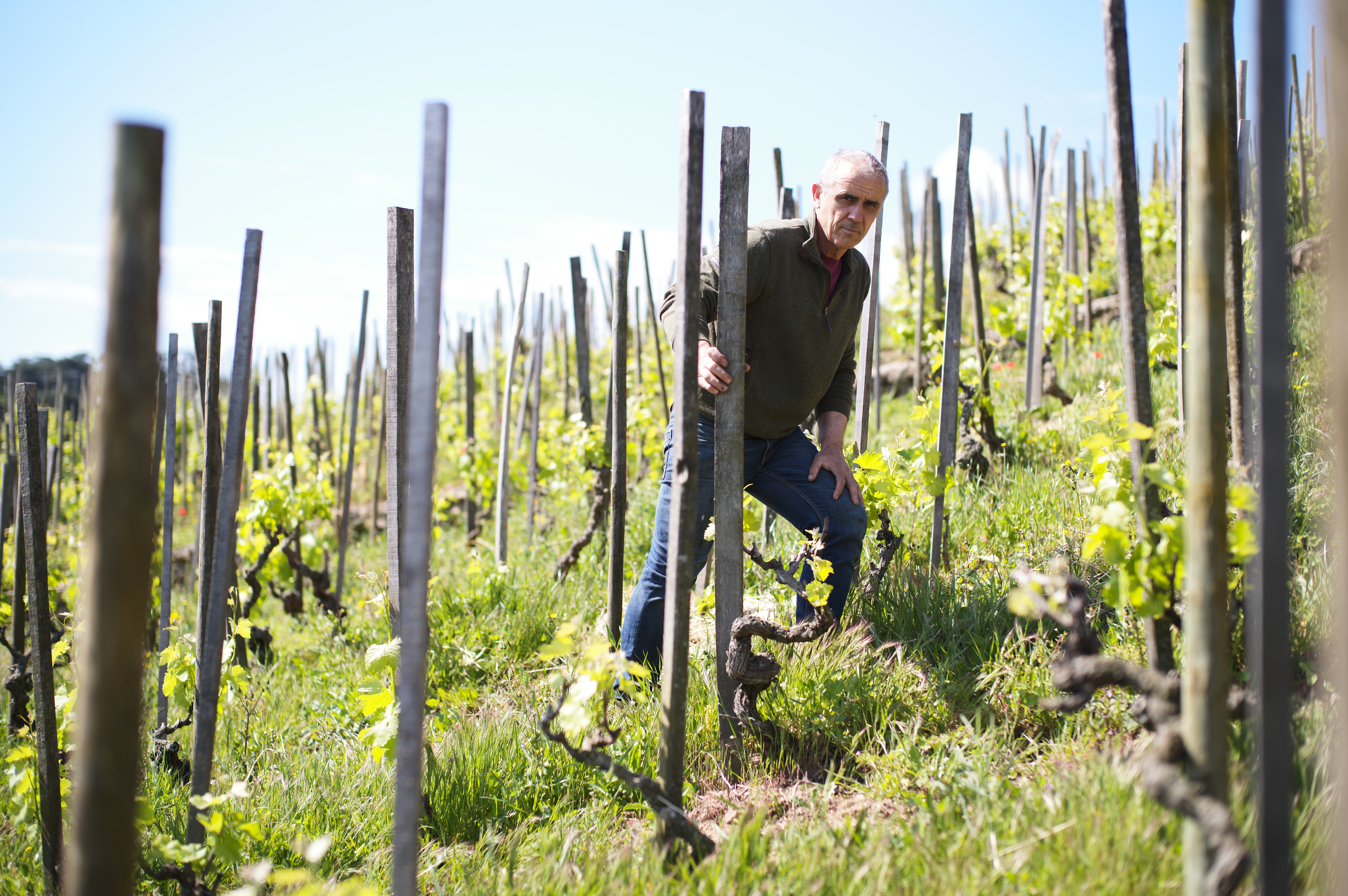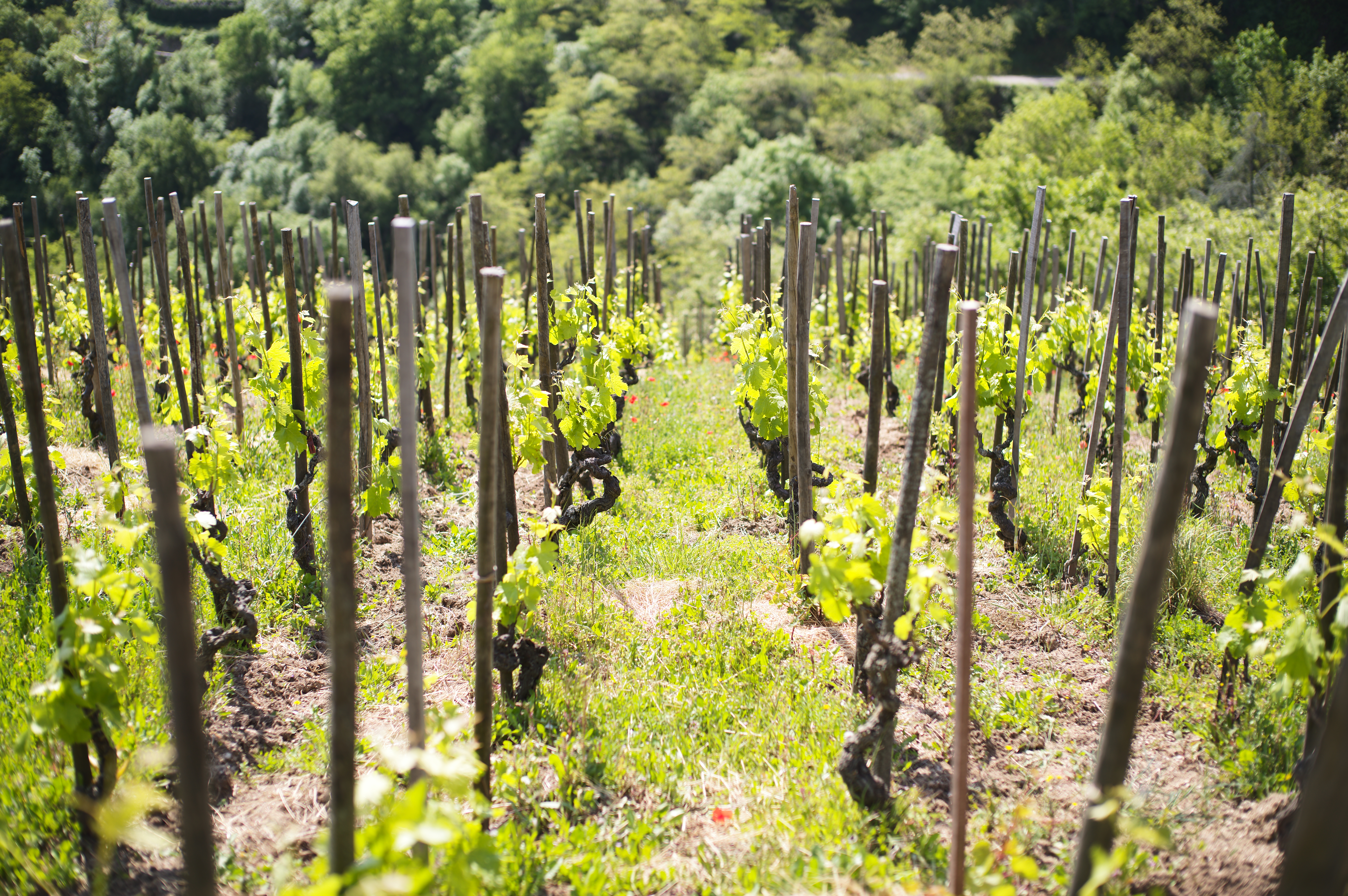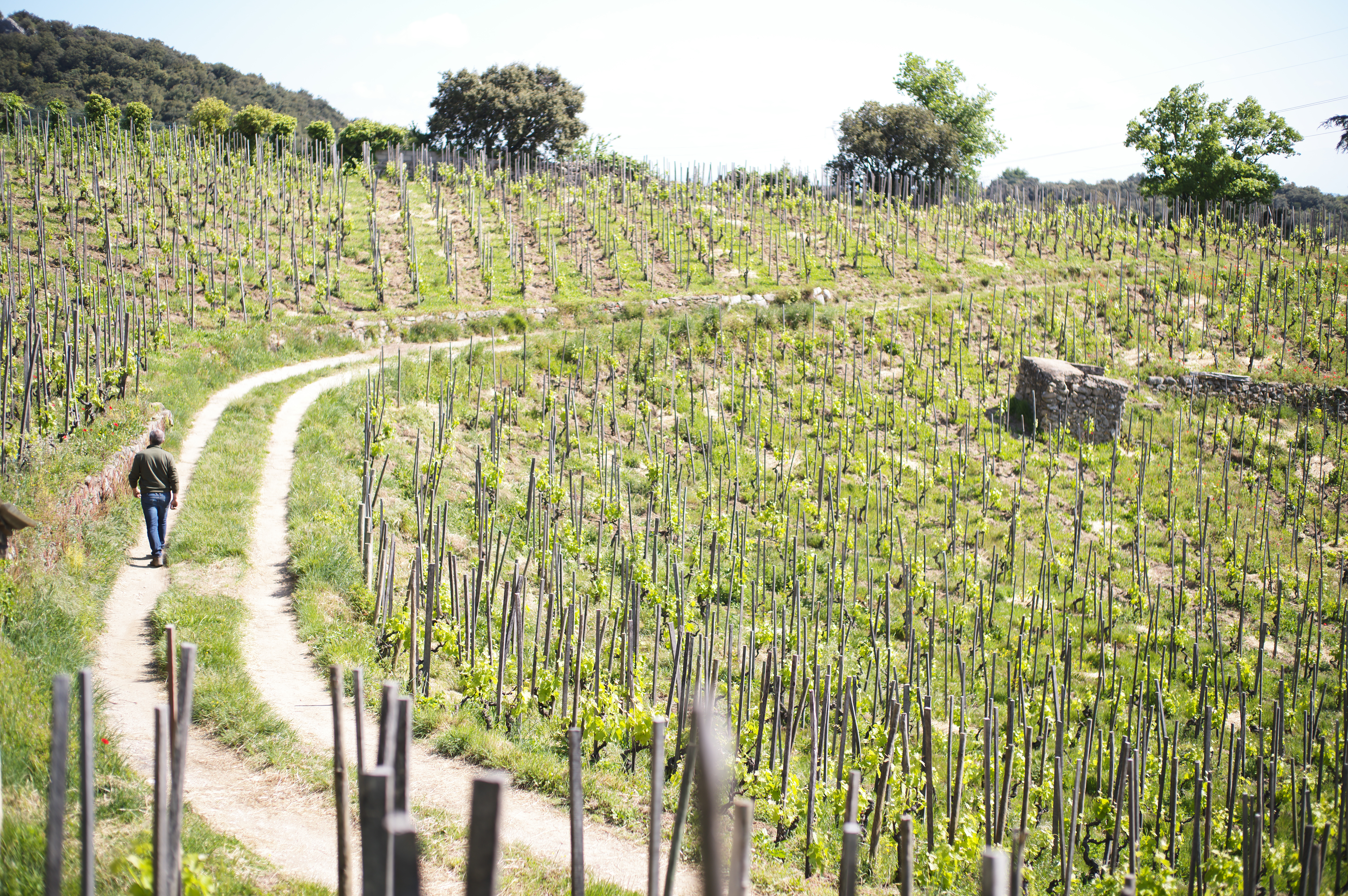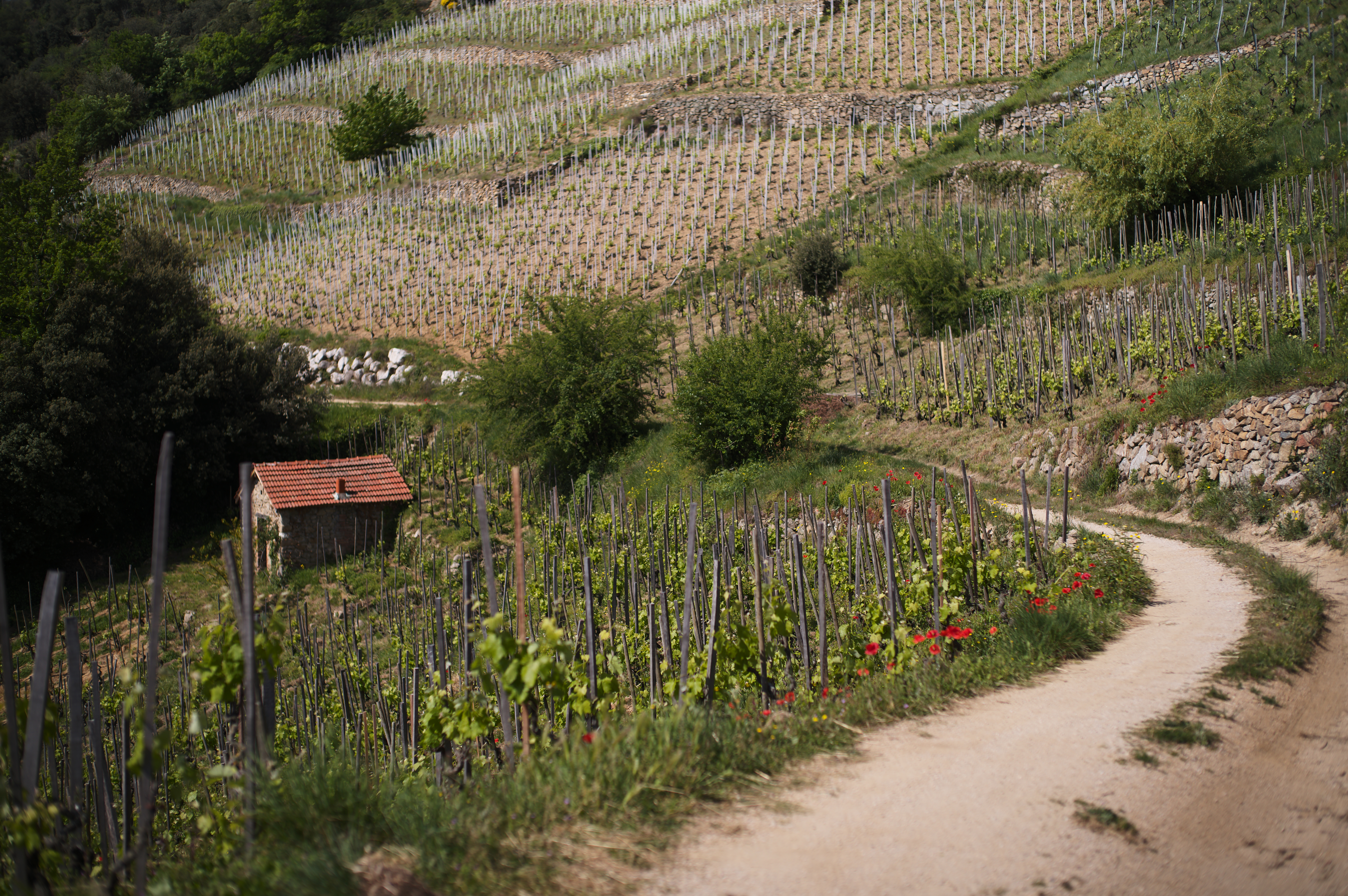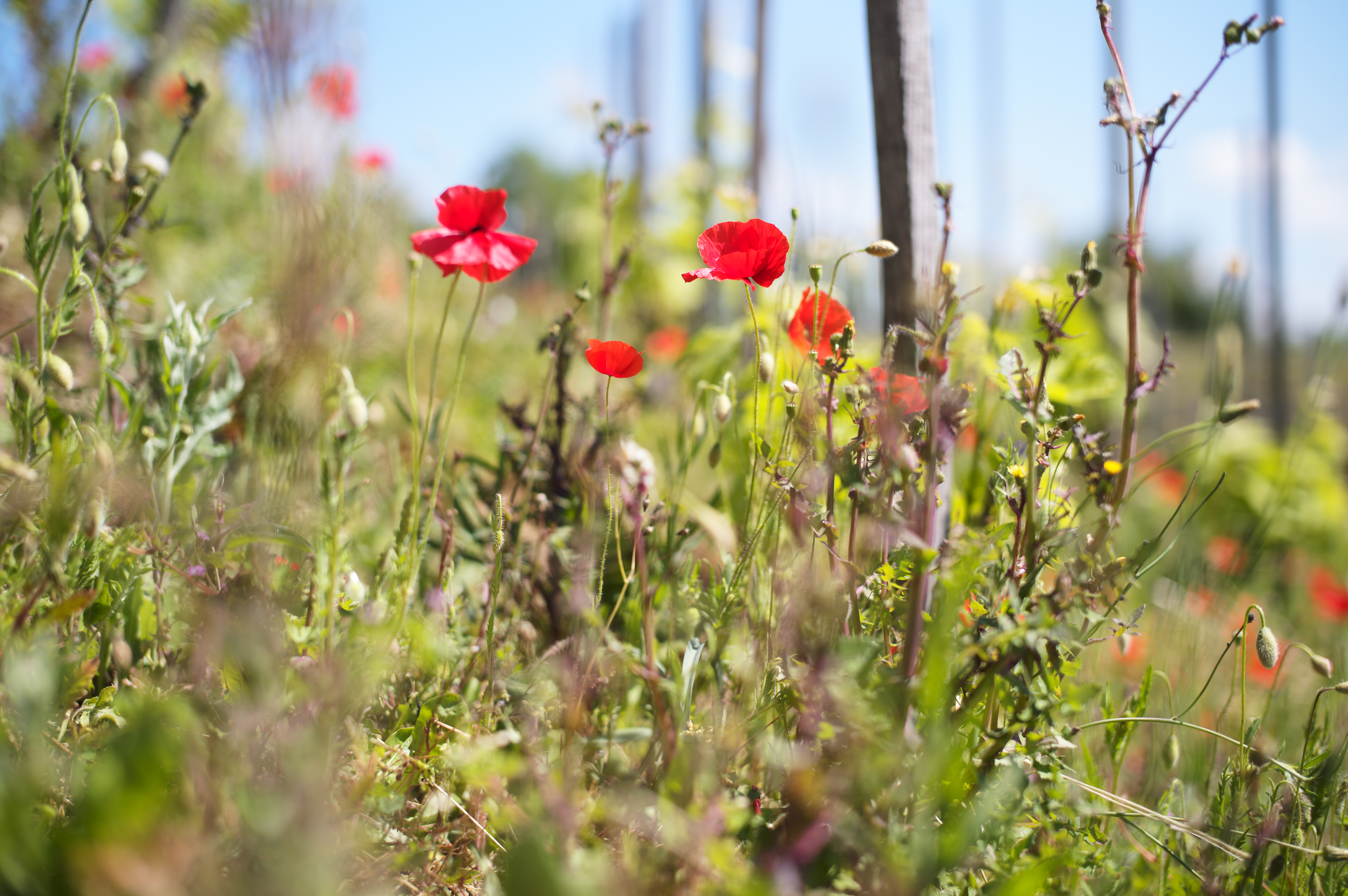From our friends at The Rare Wine Company:
It can be hard to recall that tiny Cornas and its mere 110 hectares was once completely over-shadowed by much-larger Rhône appellations.
The zone’s terraced vineyards required a Herculean effort to work, and yet the wines’ prices remained stubbornly low well into the early 2000s. It was natural then that many of the zone’s youth in that era left for easier, better-paying jobs in nearby Valence or further afield.
But the scene in Cornas today is vastly different: it is now a universally beloved hot spot for traditional Syrah, and its top bottlings are among the Northern Rhône’s most coveted.
Its modern-day success story began to take form in the 1980s, when a handful of older growers’ success—including Clape, Verset, Michel and Juge—gave confidence to the next generation, encouraging them to return home.
One of that movement’s leaders is Franck Balthazar, who left his textile factory job in 2002 to answer the siren song of Cornas’ steep granite slopes. He took over his family’s small estate and adopted, and then expanded upon, the classic farming and winemaking methods of his father, René.
Within a decade, he had established this estate as home to perhaps the most expressive, and rigorously traditional, wines in not just Cornas, but the entire Northern Rhône.
Echoes of the Past
The Balthazar domaine dates to 1931, when it was founded by Franck’s grandfather, Casimir. René took charge from his father in 1950 and, by the 1970s, he was estate-bottling a small part of his production, following the lead of Auguste Clape and Noël Verset. The balance of his output continued to be sold in cask to local cafes, just as his father’s generation had done.
Franck now bottles all his tiny production, made by methods little changed from those of his father and grandfather. Most of the estate’s vineyards are planted to la Petite Syrah, the ancient local clone whose small, olive-shaped berries produce a wine of greater aromatic complexity than modern clones.
Balthazar is so committed to his viticulture—and the traditional ways of his ancestors—that he plows many of his holdings with a horse and eschews the usage of artificial fertilizers, pesticides or fungicides. His approach in the cellar is just as “old school,” where his time-honored regime includes whole-cluster, native-yeast fermentations in concrete vats; manual cap punching; and aging in old, neutral demi-muid barrels before bottling without fining or filtration.
Aging in demi-muid, rather than the smaller pièce, is fundamental to the estate’s philosophy. As René Balthazar told Rhône wine guru John Livingstone-Learmonth, “We raise the wine in 600-litre demi-muids because they keep the wine’s perfumes better than the 225-litre casks.”
Superb Sites
A key to the stellar quality and character of Balthazar’s Cornas are the domaine’s great holdings. These include not only half-century-old vines in Mazards and La Côte, but also a 1914 planting of Petite Syrah in the revered Chaillot vineyard, acquired from Noël Verset.
Balthazar has slowly expanded the amount of land under vine and today tends over 4 hectares. A true son of Cornas, he has created terraces and planted vines on previously overgrown land on the steep Lègre slope above Sabarotte, and on high elevation Les Prés. And so he has demonstrated the Cornasien willingness to tackle the most challenging of sites, all in search of the aromas and flavors that only Syrah grown in marginal terroirs can provide.
Despite his growing fame, Franck Balthazar has remained remarkably humble. Every time we visit his small cave, we are struck by his contentment with a life spent working on Cornas’ steep slopes. Fame and fortune are of little interest to him. In his words, “the greatest potential compensation for me is that people may appreciate my wines.”
